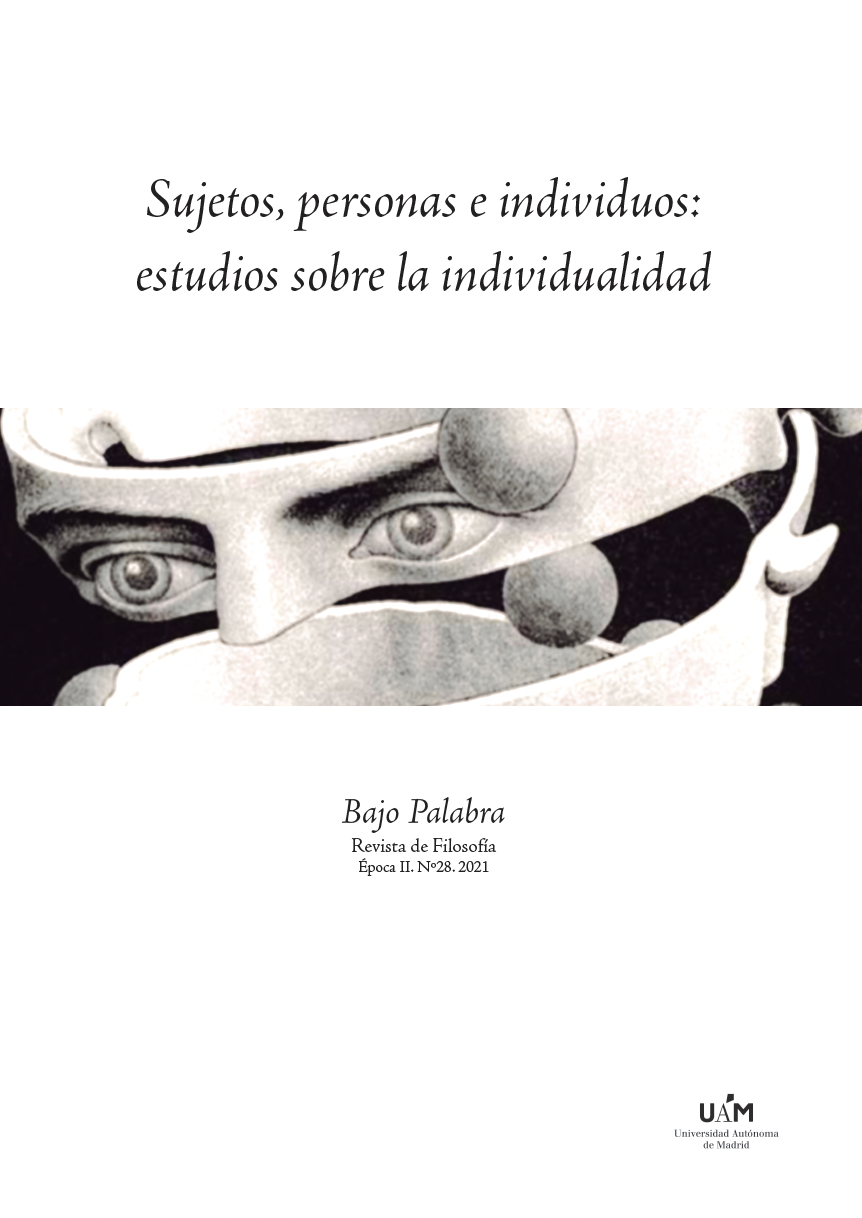Palavras-chave:
autoconciencia, expresión, pensamientos de primera persona, referenciaCopyright (c) 2021 Ángel García Rodríguez

Este trabalho está licenciado sob uma licença Creative Commons Attribution 4.0 International License.
Resumo
La autoconciencia es la capacidad
cognitiva para reconocerse a uno mismo
como sí mismo que se manifiesta de manera
paradigmática en un determinado
uso del pronombre personal de primera
persona. Según la propuesta defendida en
este artículo no se trata de un uso autorreferencial,
sino de uno expresivo. Esto
no quiere decir que uno no pueda hacer
referencia a sí mismo con el pronombre
personal de primera persona, sino que el
resultado de dicho uso no es la expresión
de un pensamiento autoconsciente. Por lo
tanto, se han de distinguir distintas variedades
del pensamiento sobre uno mismo.
Downloads
Referências
Anscombe, G.E.M. (1975). The first person. Reimpreso en Q. Cassam (ed.),
Self-knowledge. Oxford University Press, pp. 140-159.
Austin, J.L. (1961). Performative utterances, Philosophical papers, Oxford University
Press.
Bermúdez, J.L. (2005). Evans and the sense of ‘I’, en Bermúdez (ed.), Thought, reference
and experience: Themes from the philosophy of Gareth Evans. Clarendon Press,
pp. 164-194. https://doi.org/10.1093/acprof:oso/9780199248964.003.0006
Campbell, J. (1994). Past, space and self. MIT Press. https://doi.org/10.7551/
mitpress/5262.001.0001
Cassam, Q. (1997). Self and world. Clarendon Press.
de Gaynesford, M. (2004). On referring to oneself, Theoria, vol. LXX, pp. 121-
https://doi.org/10.1111/j.1755-2567.2004.tb00986.x
Evans, G. (1982). The varieties of reference. Clarendon Press.
García Rodríguez, Á. (2021). How emotions are perceived, Synthese (en prensa).
https://doi.org/10.1007/s11229-021-03209-1
McDowell, J. (1998). Referring to oneself. Reimpreso en The Engaged Intellect.
HUP, pp. 186-203.
O’Brien, L. (1995). The problem of self-identification, Proceedings of the Aristotelian
Society, vol. 95, pp. 235-251. https://doi.org/10.1093/aristotelian/95.1.235
O’Brien, L. (2007). Self-knowing agents. Oxford University Press. https://doi.
org/10.1093/acprof:oso/9780199261482.001.0001
Peacocke, Ch. (1979). Being known. Oxford University Press. pp. 33-50 https://
doi.org/10.1093/0198238606.001.0001
Perry, J. (1979). The problem of the essential indexical. Reimpreso en The problem
of the Essential Indexical and Other Essays. Oxford University Press.
Rödl, S. (2007). Self-consciousness. HUP.
Sainsbury, R.M. (2011). English speakers should use ‘I’ to refer to themselves,
en A. Hatzimoysis (ed.), Self-knowledge. Oxford University Press. pp. 246-260.
https://doi.org/10.1093/acprof:oso/9780199590728.003.0013
Strawson, P. (1959). Individuals: An essay in descriptive metaphysics. Methuen.
Strawson, P. (1994). “The first person - and others”, en Q. Cassam (ed.),
Self-knowledge. Oxford University Press. pp. 210-215.
Wittgenstein, L. (1958). The blue and brown books. Blackwell.

